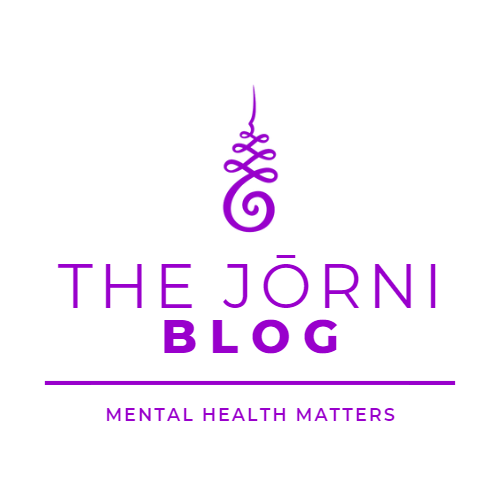Why We Need to Rethink Healthcare
We've all been there—frequent doctor visits, multiple medications, and yet, the underlying health issues remain unresolved. This pattern is indicative of a broader issue with our current healthcare system. While conventional medicine excels at acute care and treating symptoms, it often falls short when it comes to chronic conditions and preventative care. We're stuck in a reactive mode. Addressing health problems as they arise, rather than proactively working to prevent them.
Functional medicine offers an alternative, advocating for a more holistic approach that considers the individual as a whole. Instead of simply prescribing medication for a symptom, it seeks to understand the root causes behind the ailment. This could mean looking at diet, lifestyle, mental health, and other factors that conventional healthcare might overlook. Importantly, this approach puts us, the patients, back at the center of our healthcare journey. And this empowers us to take control of our own wellbeing through informed choices.
In an age where chronic conditions are rampant and healthcare costs are skyrocketing, the need for a transformative approach has never been greater. Functional medicine is stepping up to meet this need, especially in the realm of gut health. By focusing on root causes and adopting a holistic perspective, we open the door to long-term solutions. And this is something that can improve not just our gut health, but our overall wellbeing. So, as we look toward the future of healthcare, it's clear that functional medicine isn't just an option. It's a necessity.
“Functional medicine is about causes, not symptoms. It is getting to the root of the problem.”
- Mark Hyman, MD
The Trailblazer in Functional Medicine
Rachel Hurmence is a Functional Medicine and Holistic Health Coach, as well as a dedicated practitioner who collaborates with a network of skilled clinicians. This collaborative approach allows her to offer her clients an expansive range of services, from lab testing and personalized treatment plans to supplement protocols and health coaching. Her client base is diverse, covering individuals dealing with thyroid issues, gastrointestinal concerns, hormonal imbalances, and autoimmune conditions, just to name a few.

Rachel brings a unique blend of psychological and nutritional expertise. She holds a degree in psychology and has received her health coaching certification from the Institute for Integrative Nutrition. With three years of coaching experience under her belt, Rachel is currently preparing for her board exam through the National Board of Health and Wellness Coaching, set for the end of 2023. Her background also includes a focus on women's health and weight loss coaching, and she has collaborated with various functional medicine and naturopathic doctors. Originally hailing from Georgia, she relocated to Utah two years ago to fuel her love for outdoor adventures amidst the scenic mountain landscapes.
Understanding the Science of Functional Medicine
We're accustomed to a healthcare system that treats symptoms first and asks questions later. However, functional medicine turns this conventional approach on its head by prioritizing a holistic understanding of our health over quick symptom relief. It considers every aspect of the individual, from lifestyle and diet to mental health, as interconnected pieces of a larger health puzzle. This kind of comprehensive approach allows us to target the root causes of our ailments, providing a more sustainable, long-term strategy for wellbeing.
From Symptoms to Root Causes
For most of us, feeling better in the short term is the primary goal when we're sick. Conventional medicine excels at this, offering quick relief through medications and treatments. But functional medicine asks a more fundamental question: Why did we become ill in the first place? It aims to understand the underlying factors that contribute to our health problems, be it lifestyle choices, genetic predispositions, or environmental influences. By discovering these root causes, we are paving the way for healthier, more vibrant lives in the long term, and letting go of the band-aid approach.
The Diagnostic Tools That Make It Possible
Functional medicine employs a wide variety of diagnostic tools that go beyond the standard blood tests and physical exams common in traditional healthcare settings. From comprehensive hormone panels to detailed microbiome assessments, these diagnostic methods give us a full picture of our health landscape. Armed with this information, a functional medicine practitioner can create highly personalized treatment plans that target our unique health challenges and needs.

The Role of Lifestyle and Prevention in Functional Medicine
In the realm of functional medicine, lifestyle choices and preventative measures are foundational elements. While traditional medicine often steps in after problems have already developed, functional medicine works to preempt these issues by focusing on preventive care. This involves an in-depth look at an individual's daily habits, including diet, exercise, sleep patterns, and stress levels. By identifying potential risk factors and encouraging healthy behaviors, we are actively working to prevent illness. This approach is a hallmark of functional medicine and is integral in achieving and maintaining optimal wellbeing for the long haul.
The Central Role of Gut Health
The importance of gut health extends far beyond digestion. It's a critical part of our overall wellbeing. And can impact everything from our immune function to our mental health. Unfortunately, the significance of the gut is often overlooked in traditional healthcare models, but it's a focal point in functional medicine. This emphasis is vital because the gut is often referred to as the “second brain”, given its influence on neurotransmitters and hormones that regulate mood and cognition. Disruptions in gut health can lead to a cascade of issues. From autoimmune diseases to chronic fatigue and even mental health challenges like depression and anxiety. By placing the gut at the center of the healthcare conversation, functional medicine aims to address these interconnected systems, offering a more complete approach to health and wellbeing.
The Microbiome
Our gut is home to an incredibly diverse community of microorganisms known as the microbiome. These trillions of tiny residents play a critical role in our overall wellbeing, affecting a wide array of bodily functions including metabolism, immunity, and even mood. When the balance of this delicate ecosystem is disrupted, whether by diet, stress, or other environmental factors, the ripple effects can be seen and felt throughout our bodies - from digestive issues to mood disorders.

Why Balance is Essential
Achieving and maintaining a balanced gut is not a luxury; it's a necessity for optimal health. An imbalanced gut can lead to a host of problems, such as poor nutrient absorption, increased susceptibility to infections, and chronic symptoms like fatigue and brain fog. By focusing on gut balance, functional medicine aims to set the stage for a cascade of health improvements that reverberate throughout the entire body.
The Critical Role of Gut Health
Gut health is often dubbed the cornerstone of overall wellbeing for good reason. Its state not only influences digestive comfort but has far-reaching effects on multiple aspects of health, including immune function, mental health, and chronic disease risk.
Gut as the Second Brain
Recent studies have shed light on the gut-brain axis, a bi-directional communication pathway that connects your digestive system with your brain. Imbalances in gut health can manifest as mood disorders, stress, and cognitive impairments. Ensuring a balanced gut microbiome is crucial for optimal mental health.
Immune System
Approximately 70% of our immune cells reside in the gut. It serves as the frontline defense against pathogenic invasions and also plays a critical role in inflammation regulation. A compromised gut can make one more susceptible to infections, autoimmune conditions, and chronic diseases.

Metabolic Functions: Beyond Digestion
The gut is instrumental in nutrient absorption and the synthesis of essential compounds like certain vitamins and neurotransmitters. Its health can directly impact metabolic processes, affecting weight management, energy levels, and even skin condition.
Practical Strategies for Nurturing Gut Health
Improving gut health is an actionable goal, one that can be achieved through conscious lifestyle choices.
Fiber Intake: A diet abundant in fiber from sources such as fruits, vegetables, and whole grains is instrumental in sustaining a balanced gut microbiome.
Probiotic and Prebiotic Support: Consuming fermented foods like yogurt, sauerkraut, and kimchi, or opting for evidence-based probiotic supplements can aid in regulating gut microbial equilibrium.
Hydration: Sufficient water consumption is vital for optimal digestive functions and helps foster a balanced environment for beneficial gut bacteria.

Judicious Antibiotic Use: Overreliance on antibiotics can severely disrupt gut microbial diversity. Always consult a healthcare practitioner for alternative courses of treatment where applicable.
Consistent Physical Exercise: Engaging in regular physical activity has been empirically demonstrated to boost gut health by enriching microbial diversity.
By attending to gut health through these actionable strategies, we can improve our digestive wellbeing and can also make substantial strides in holistic health improvement, from bolstering immune function to enhancing mental clarity.
Practical Steps for Taking Control of Your Wellbeing
Taking control of our wellbeing involves a comprehensive approach that goes beyond treating symptoms. Functional medicine offers us a roadmap to complete physical, mental, and emotional health. By incorporating various actionable steps into our routine, we can not only manage our ailments more effectively but also reach a state of optimal health. Here are some strategies to help on this transformative journey.
Consult a Functional Medicine Expert
Our initial step should be consulting a qualified functional medicine practitioner. A specialist in this field can guide us through the intricate landscape of diagnosis and treatment, offering personalized plans tailored to our specific healthcare needs. Through one-on-one consultations, we can delve deep into our health history, allowing the expert to identify root causes of our ailments and devise a plan of action.
Prioritize Nutrition
Nutrition plays a central role in functional medicine. Eating a balanced diet rich in fiber, protein, and healthy fats can significantly improve our gut health. By eliminating processed foods, artificial sweeteners, and excess sugars, we give our gut a better fighting chance to maintain a healthy balance. Functional medicine practitioners often provide nutritional guidance, meal plans, and even cooking tips to help us make more informed choices.
Get Moving
Exercise is not merely about losing weight or building muscle; it has direct implications for our gut health as well. Regular physical activity, be it a brisk walk, yoga, or a more strenuous workout, helps improve gut motility and contributes to a balanced microbiome. The increased blood flow and regulation of hormones during exercise also support better digestion and nutrient absorption.

Manage Stress Effectively
Chronic stress wreaks havoc on our gut and overall wellbeing. The constant release of stress hormones like cortisol can lead to inflammation and digestive issues. Functional medicine often recommends stress management techniques, such as mindfulness, meditation, and deep-breathing exercises. These methods not only reduce stress but also have positive effects on other health markers, including blood pressure and heart rate.
Regular Health Check-Ups and Monitoring
To maintain optimal health, periodic check-ups are essential. They allow us to catch potential health issues early, giving us a better chance at effective treatment. In functional medicine, these aren't your average check-ups. Advanced diagnostic tools, including hormone panels and gut microbiome assessments, provide a comprehensive health snapshot. By regularly monitoring these markers, we can adjust our treatment plans as necessary, ensuring we are on the most effective path toward optimal wellbeing.
By embracing these multifaceted strategies, we empower ourselves to take charge of our health in a meaningful way. From expert consultations and personalized nutrition plans to effective stress management and regular monitoring, each of these steps is a building block toward a healthier, more vibrant version of ourselves.
The TAKEAWAY
Functional medicine offers a revolutionary approach that could redefine our overall wellbeing, especially in the realm of gut health. It fills in the gaps left by traditional medicine by focusing on root causes rather than merely treating symptoms. By incorporating advanced diagnostic tools and highly personalized treatment plans, functional medicine provides a holistic framework that can help us achieve long-term health. This goes beyond the Band-Aid solution, to provide a comprehensive strategy designed to treat the underlying issues. In the long-run functional medicine sets the stage for sustainable health improvements.

Moreover, functional medicine empowers us as individuals. It offers us the tools and guidance to take an active role in our own health, making informed choices about our lifestyle, diet, and stress management techniques. It provides a roadmap to not just recovery but thriving, enabling us to attain a level of health we might not have thought possible. This approach turns the traditional healthcare model on its head, making us an integral part of the solution rather than passive recipients of prescriptions and procedures.
The future of healthcare is one where the focus shifts from merely treating symptoms to creating a sustainable, balanced state of health. And functional medicine is leading the way in this paradigm shift. By embracing the principles and strategies it offers, we're not just improving our present health; we're investing in a healthier, more vibrant future.
This is a future where healthcare is not merely a series of reactionary treatments but a proactive, lifelong pursuit of optimal wellbeing.
https://thejornipodcast.com/episode-106-functional-medicine-and-gut-health-with-rachel-hurmence

